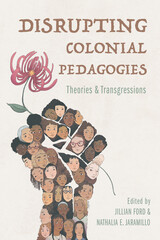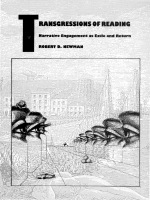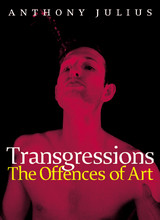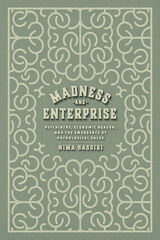
Jillian Ford and Nathalia E. Jaramillo edit a collection of writings by women that examine womanist worldviews in philosophy, theory, curriculum, public health, and education. Drawing on thinkers like bell hooks and Cynthia Dillard, the essayists challenge the colonizing hegemonies that raise and sustain patriarchal and male-centered systems of teaching and learning. Part One examines how womanist theorizing and creative activity offer a space to study the impact of conquest and colonization on the Black female body and spirit. In Part Two, the contributors look at ways of using text, philosophy, and research methodologies to challenge colonizing and colonial definitions of womanhood, enlightenment, and well-being. The essays in Part Three undo the colonial pedagogical project and share the insights they have gained by freeing themselves from its chokehold.
Powerful and interdisciplinary, Disrupting Colonial Pedagogies challenges colonialism and its influence on education to advance freer and more just forms of knowledge making.
Contributors: Silvia García Aguilár, Khalilah Ali, Angela Malone Cartwright, Adriana Diego, LeConté Dill, Sameena Eidoo, Genevieve Flores-Haro, Jillian Ford, Leena Her, Nathalia E. Jaramillo, Patricia Krueger-Henney, Claudia Lozáno, Liliana Manriquez, Alberta Salazár, León Salazár, and Lorri Santamaría

Newman describes this psychodrama of narrative engagement as that of exile and return, an experience in which narrative becomes a type of homeland, beckoning and elusive, endlessly defining and disrupting the borders of a reader's identity. Within this paradigm, he considers a fascinating variety of narrative texts: from the Jim Jones episode in Guyana to Freud's repression of personal history in his story of Moses; from a surrealistic collage novel by Max Ernst to the horror films of Alfred Hitchcock; from the works of James Joyce, Ariel Dorfman, Milan Kundera, and D. M. Thomas to the tales of abjection in pornography.
Transgressions of Reading is itself an engaging work, as interesting for its provocative readings of particular works as for its theoretical insights. It will appeal to readers from all fields in which narrative plays a crucial role, in the study of film and art, modern and contemporary literature, popular culture, and feminist, psychoanalytic, and reader response theory.

Transgressions is the first book to address this controversial subject. Here Anthony Julius traces the history of subversion in art from the outraged response to Manet's Le Déjeuner sur l'Herbe to the scandal caused by the grant programs of the National Endowment for the Arts a century and a half later. Throughout the book, and supported by the work of such artists as Marcel Duchamp, the Chapman brothers, Andres Serrano, Damien Hirst, Gilbert & George, Paul McCarthy, Jeff Koons, Hans Haacke, and Anselm Kiefer, Julius shows how the modern period has been characterized by three kinds of transgressive art: an art that perverts established art rules; an art that defiles the beliefs and sentiments of its audience; and an art that challenges and disobeys the rules of the state.
The evidence assembled, Julius concludes his hard-hitting dissection of the landscapes of contemporary art by posing some important questions: what is art's future when its boundary-exceeding, taboo-breaking endeavors become the norm? And is anything of value lost when we submit to art's violation?
Transgressions is not a comfortable—still less a comforting—read, but it has a powerful urgency that makes it an essential document for anyone involved in our cultural life at the beginning of the twenty-first century.
READERS
Browse our collection.
PUBLISHERS
See BiblioVault's publisher services.
STUDENT SERVICES
Files for college accessibility offices.
UChicago Accessibility Resources
home | accessibility | search | about | contact us
BiblioVault ® 2001 - 2024
The University of Chicago Press









